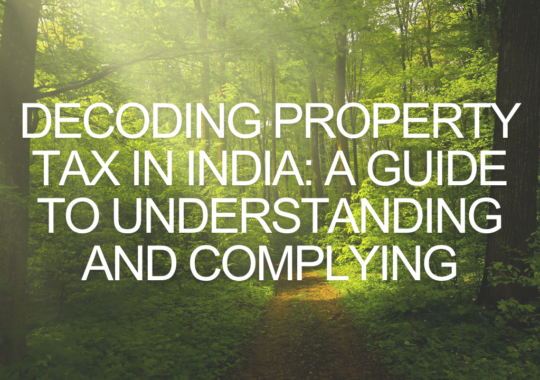The Indian real estate market is one of the largest in the world. The market has been growing rapidly over the past decade, with property prices increasing at an average of 8-10% annually. India has seen a huge influx of foreign investments in recent years, which has further bolstered the market.
The real estate sector in India is driven by rising urbanization, increasing disposable income of the middle class, and a growing population. The sector has attracted investors from around the world who are looking for potential returns from their investments. The government has also taken steps to facilitate investment in the sector, through initiatives such as Real Estate Investment Trusts and reduced stamp duty.
The residential real estate sector is the largest contributor to the overall real estate market in India. The tier I cities of Delhi, Mumbai and Bangalore account for a large share of the market, with rising demand for residential properties from both local and international buyers. There is also growing demand from non-metros, with investors looking for Tier II cities for investing in residential properties.
The commercial real estate sector has been growing steadily in India, due to the increasing demand from corporate entities for office space and warehouses. Retail and hospitality are also emerging segments that have seen steady growth in recent years.
The Indian real estate market is expected to further grow at a steady rate, driven by rising demand and government initiatives. The market has immense potential for investors and developers, who can capitalize on the opportunities available in the sector.
What to Consider Before Buying Real Estate in India
1. Location: Location is one of the most important factors to consider when buying real estate in India. You should consider the convenience of the property to public transportation, shopping centers, schools, hospitals, and other amenities.
2. Property Type: Consider the type of property you are looking to buy. Whether you want to buy an apartment, villa, plot of land, or any other type of property.
3. Property Price: Make sure you consider the current market price of the property. You should also make sure that the property is not overpriced.
4. Legal Documents: Make sure you do your due diligence when it comes to the legal documents associated with the property. Make sure you understand all the terms and conditions before making a purchase.
5. Financing Options: Consider the financing options available to you when buying real estate in India. You should make sure you understand all the conditions associated with the loan and how it affects your purchase.
6. Property Taxes: Make sure you are aware of the property taxes associated with the property before buying it. Also, make sure you are aware of any additional costs associated with ownership.
Choosing the Right Property for You
When it comes to choosing the right property, it’s important to take into consideration your budget, lifestyle, and long-term goals. It’s important to do research on the area you are looking at and consider things like commute times, schools, amenities, and future growth potential. Talk to a real estate agent and determine what type of property would best meet your needs and budget. Consider the pros and cons of purchasing a fixer-upper, a new construction home, or an existing home. Once you’ve narrowed down your options, it’s important to view the property in person and get a good feel for the neighborhood before making any decisions.
Questions to Ask Before Making an Offer on a Property
When considering making an offer on a property, it is important to ask a variety of questions to ensure that the property is a good investment.
Questions such as:
- What is the condition of the property?
- Are there any major repairs required?
- What kind of renovations have been done?
- What are the HOA fees?
- Are there any pending legal issues or liens against the property?
- What is the crime rate in the area?
- What kind of insurance coverage is available for the property?
These are just a few of the questions that should be asked before making an offer on a property. Asking these questions can help ensure that the purchase will be a sound investment.
Tips for Negotiating a Good Deal
1. Do your research: Before negotiating a real estate deal, it is important to do your homework and research the local housing market. You need to have a good understanding of the average home prices in the area, as well as any recent trends in terms of appreciation and depreciation. Knowing what kind of deal you should be negotiating can help you get the best value for your money.
2. Know your bottom line: Before negotiating a real estate deal, know exactly how much money you can afford to spend and what kind of terms you want in the deal. This is important because it will give you a clear idea of what to aim for when negotiating.
3. Make an offer: Once you know your target price, make an offer that is close to it. Do not be afraid to start low, as this will give you some room to negotiate and allow the seller to counteroffer.
4. Be prepared to walk away: Sometimes, a seller will not budge on their price no matter how hard you bargain. This is when it is important to know when it is time to walk away and move onto the next property.
5. Leverage other offers: If you know that the seller has received other offers, you can use this to your advantage. If they have received multiple offers, then they may be more willing to negotiate with you if they think that you could potentially get a better offer.
6. Be flexible: Be open to negotiating on different terms, such as closing costs, repairs, or even the length of the contract. Being willing to negotiate on these terms can help you get a better deal.
7. Ask for help: If you are feeling overwhelmed by the process, do not hesitate to ask for help from a real estate professional. They can provide valuable advice and help you get the best deal possible.
Understanding the Documents Involved in Purchasing Real Estate in India
When purchasing real estate in India, there are a few important documents to be aware of.
- The first is the sale deed, which is the legal document that officially transfers ownership of the property from the seller to the buyer. This document must be signed by both parties and should include information about the property, the price, and any other conditions agreed upon by both parties.
- The second document is the title deed, which proves that the person selling the property has legal title to it. This document must be signed by both parties to prove that the seller has the legal authority to sell the property.
- The third document is the registration certificate, which is necessary for completing the final transfer of ownership. This document is issued by the government’s Registrar of Properties and must be signed by both parties to complete the registration process.
- Finally, the fourth document is the allotment letter, which is issued by the government once the registration certificate has been obtained. This document confirms that the buyer has been given full ownership of the property.
These are some of the most important documents involved in purchasing real estate in India. It is important for buyers to understand these documents and their contents before proceeding with any real estate transaction.
In conclusion, buying real estate in India can be a complicated process due to the various laws and regulations that need to be taken into consideration. With proper research and due diligence, however, individuals can successfully purchase property in India. An experienced real estate lawyer should be consulted to ensure that all legal aspects of the purchase are taken care of and that the buyer’s rights are protected. Finally, it is important to bear in mind that a successful real estate purchase is based on thorough research and negotiation, so it is vital to take the time to understand the market and its dynamics.
Click here to know how to invest in stocks for kids.
Hey! I am a content writer wiling to research, learn and write about something new everyday.




